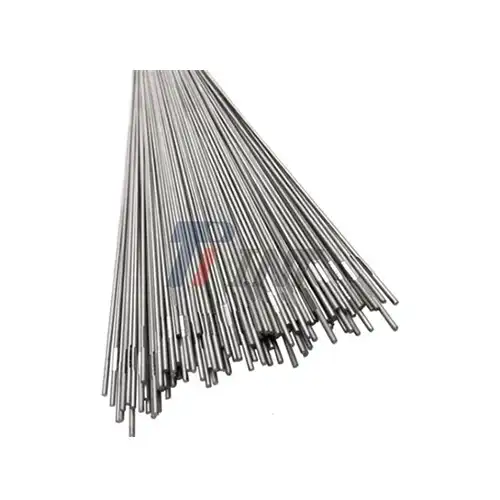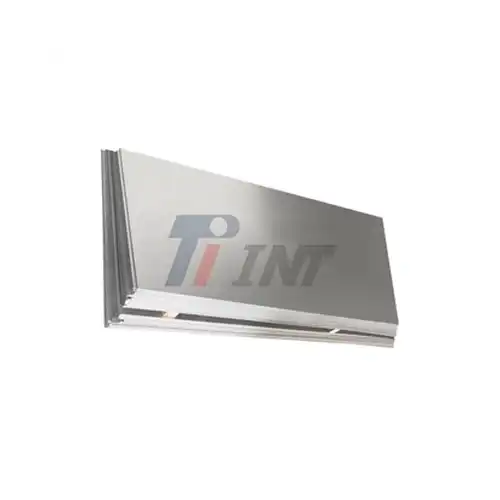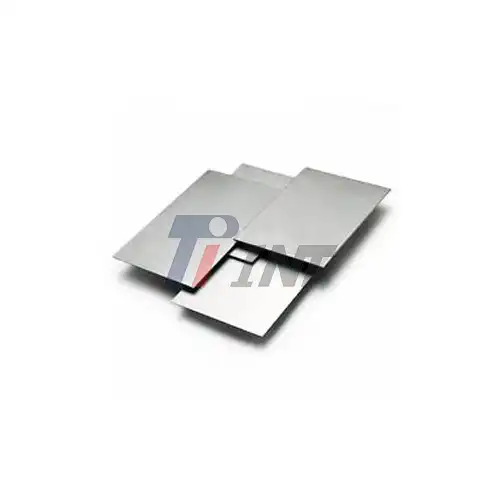The Advantages of 3mm Titanium Plates in Medical Implants
Unparalleled Biocompatibility and Safety
One of the most crucial aspects of any medical implant is its biocompatibility – the ability to integrate seamlessly with human tissue without causing adverse reactions. 3mm titanium plates excel in this regard, thanks to the inherent properties of titanium and its alloys. The human body readily accepts titanium, minimizing the risk of rejection or allergic reactions that can occur with other materials.
The biocompatibility of 3mm titanium plates is not really a matter of fabric choice; it's almost entirely a matter of plan and fabricating accuracy. These plates are designed to have smooth surfaces and adjusted edges, lessening the probability of tissue bothering or aggravation. This consideration of detail contributes to speedier mending times and persistent consolation amid the recuperation handle.
Moreover, the use of high-grade titanium alloys like Ti6Al4V ELI (Extra Low Interstitial) ensures an even higher level of purity and biocompatibility. This grade of titanium is specifically developed for medical applications, with stringent controls on the levels of impurities that could potentially interact with biological systems.
Lightweight Design for Patient Comfort
Despite their high strength, 3mm titanium plates are remarkably lightweight. This characteristic is particularly beneficial in medical implants, where every gram matters. The low density of titanium – about 40% lighter than steel – translates to implants that place minimal additional burden on the patient's body.
The lightweight nature of these plates is especially advantageous in areas where mobility is crucial, such as in spinal or limb surgeries. Patients report less discomfort and a quicker return to normal activities when lightweight implants are used. This is not just a matter of comfort; it can significantly impact the rehabilitation process and overall recovery time.
Furthermore, the lightweight property of 3mm titanium plates doesn't come at the expense of structural integrity. These plates maintain their shape and function under the stresses of daily activities, providing reliable support where it's needed most.
Superior Corrosion Resistance for Long-Term Use
The human body is a challenging environment for any foreign material, with various bodily fluids and chemical processes that can degrade many substances over time. This is where the exceptional corrosion resistance of 3mm titanium plates truly shines. Titanium naturally forms a stable, protective oxide layer on its surface when exposed to oxygen, creating a barrier against corrosive elements.
This erosion resistance is crucial for long-term inserts, as it avoids corruption of the fabric over time. Not at all like a few other metals utilized in therapeutic inserts, titanium plates keep up their basic astuteness and surface properties indeed after a long time of introduction to the body's inner environment. This soundness not as it were guarantees the life span of the embed but too avoids the discharge of possibly destructive metal particles into the encompassing tissues.
The corrosion-resistant properties of 3mm titanium plates also contribute to their biocompatibility. By resisting breakdown in the body, these plates minimize the risk of localized tissue reactions or systemic effects that could occur if the implant material were to degrade over time.
Engineering Excellence: The Strength and Durability of 3mm Titanium Plates
High Strength-to-Weight Ratio
The 3mm titanium plates used in medical implants boast an impressive strength-to-weight ratio, a critical factor in their performance and popularity. This property allows these plates to provide robust support and stability while remaining incredibly light. The high strength of titanium alloys like Ti6Al4V enables these thin plates to withstand significant loads and stresses, making them suitable for a wide range of medical applications, from orthopedic surgeries to maxillofacial reconstructions.
The strength of these plates is not just about resisting breakage; it's about maintaining structural integrity under various types of stress. Whether it's the compressive forces in spinal fusion procedures or the bending moments in long bone fracture repairs, 3mm titanium plates consistently demonstrate their ability to provide stable fixation without compromising on weight.
This optimal balance of strength and weight also contributes to improved surgical outcomes. Surgeons can achieve precise alignment and fixation with these plates, knowing that they will maintain their shape and position even under the dynamic loads of the human body. This reliability is crucial in ensuring proper healing and restoring function to injured or diseased areas.
Exceptional Fatigue Resistance
In the realm of medical implants, fatigue resistance is a critical property that determines the long-term success of the device. 3mm titanium plates excel in this aspect, demonstrating remarkable resilience against repetitive stress and cyclic loading. This characteristic is particularly important in implants that are subjected to constant movement or stress, such as those used in joint reconstructions or spinal stabilizations.
The fatigue resistance of these titanium plates stems from the material's unique microstructure and its ability to distribute stress evenly across its surface. Even under millions of cycles of loading, these plates maintain their structural integrity, significantly reducing the risk of implant failure due to metal fatigue.
This property not only ensures the longevity of the implant but also provides peace of mind to patients and surgeons alike. Knowing that the implant can withstand the daily stresses of movement and activity without weakening over time is crucial for patient confidence and overall treatment success.
Customization Capabilities for Surgical Precision
While the standard 3mm thickness of these titanium plates offers versatility across many applications, the true strength of this technology lies in its customization capabilities. Advanced manufacturing techniques allow for precise tailoring of these plates to meet specific surgical needs and individual patient anatomies.
Computer-aided design (CAD) and 3D printing technologies have revolutionized the production of custom titanium implants. Surgeons can now work with manufacturers to create plates with exact dimensions, contours, and hole placements that perfectly match a patient's anatomy. This level of customization not only improves the fit and function of the implant but can also reduce surgery time and improve overall outcomes.
The ability to customize 3mm titanium plates extends beyond just shape and size. Surface treatments, coatings, and even the integration of bioactive materials can be incorporated to enhance osseointegration or address specific clinical needs. This flexibility in design and manufacturing allows for a truly personalized approach to medical implants, optimizing each device for its intended use and patient.
Quality Assurance and Regulatory Compliance of 3mm Titanium Plates
Rigorous Certification Standards
The production of 3mm titanium plates for medical implants is subject to some of the most stringent quality control measures in the manufacturing industry. These plates must meet or exceed a range of international standards and certifications to ensure their safety and efficacy in medical applications.
Key certifications for these implants include ISO9001:2015 for quality management systems, ISO13485:2016 specifically for medical devices, and EU CE marking for compliance with European health, safety, and environmental protection standards. These certifications are not mere formalities; they represent comprehensive audits of the entire manufacturing process, from raw material selection to final product testing.
The ISO13485:2016 certification, in particular, is crucial for medical device manufacturers. It ensures that the company has implemented a quality management system that meets the unique regulatory requirements of the medical device industry. This certification covers aspects such as risk management, design control, and traceability – all critical factors in producing safe and effective medical implants.
Advanced Manufacturing Processes
The production of high-quality 3mm titanium plates involves a series of sophisticated manufacturing processes. These processes are designed to ensure consistency, precision, and the highest levels of quality in every plate produced.
One of the key manufacturing techniques used is precision forging. This process allows for the creation of complex shapes while maintaining the optimal grain structure of the titanium alloy, crucial for its strength and fatigue resistance. Following forging, the plates undergo precise machining to achieve the exact dimensions and surface finish required for medical use.
Surface treatment is another critical aspect of the manufacturing process. Techniques such as anodization or passivation are often employed to enhance the corrosion resistance and biocompatibility of the titanium plates. These treatments create a stable oxide layer on the surface of the titanium, further protecting it from the aggressive environment inside the human body.
Quality control is coordinated at each step of the fabricating handle. Progressed review procedures, counting non-destructive testing strategies like X-ray and ultrasonic checking, are utilized to distinguish any inside absconds or irregularities in the fabric. This level of examination guarantees that each 3 mm titanium plate meets the most noteworthy measures of quality and unwavering quality.
Continuous Innovation and Research
The field of medical implants is one of rapid advancement, and 3mm titanium plates are no exception. Ongoing research and development efforts are continually pushing the boundaries of what's possible with these implants.
Current areas of innovation include the development of novel titanium alloys with even better biocompatibility and mechanical properties. Researchers are exploring ways to enhance the osseointegration of titanium implants, such as creating micro- and nano-textured surfaces that promote better bone adhesion and growth.
Another exciting area of research is the integration of smart technologies into titanium implants. This could include sensors that monitor healing progress or detect early signs of infection, potentially revolutionizing post-operative care and long-term implant monitoring.
Collaborations between medical professionals, engineers, and materials scientists are driving these innovations forward. As our understanding of the body's interaction with implant materials grows, so too does our ability to design and manufacture 3mm titanium plates that offer even better performance and patient outcomes.
Conclusion
High-strength 3mm titanium plates represent a pinnacle of medical implant technology, offering an unparalleled combination of biocompatibility, strength, and durability. Their lightweight yet robust nature, coupled with excellent corrosion and fatigue resistance, makes them ideal for a wide range of surgical applications. As manufacturing techniques continue to advance and research unveils new possibilities, these titanium plates are set to play an even more significant role in the future of medical implants.
For those seeking to learn more about cutting-edge medical titanium products or explore custom solutions for specific surgical needs, Baoji INT Medical Titanium Co., Ltd. stands ready to assist. With over three decades of experience in titanium material research, development, and production, INT offers a comprehensive range of high-quality medical titanium materials. To discuss your requirements or for more information, please contact us at export@tiint.com.


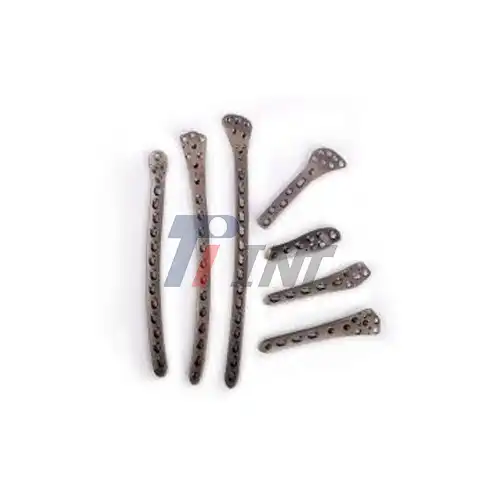
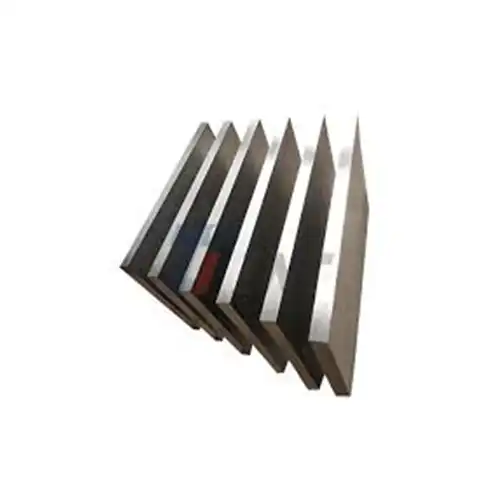






 2025-07-11 17:20:33
2025-07-11 17:20:33
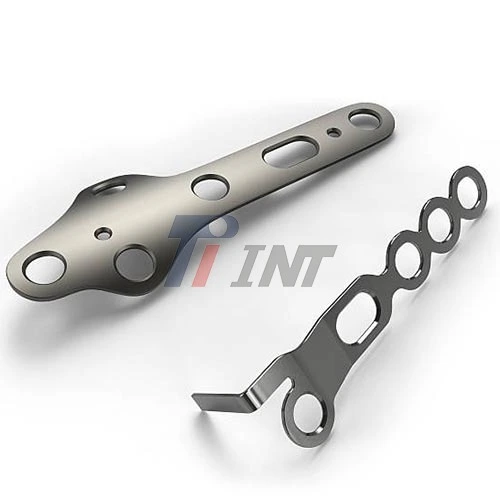
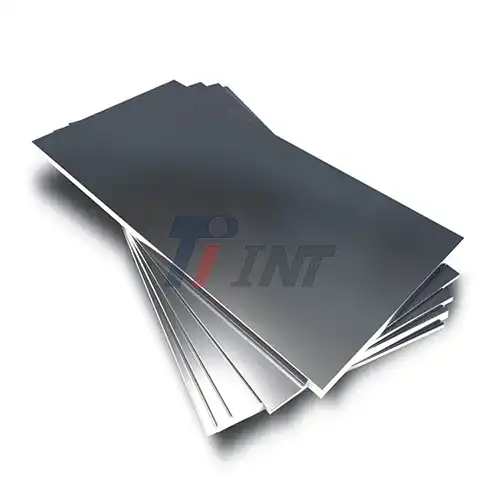
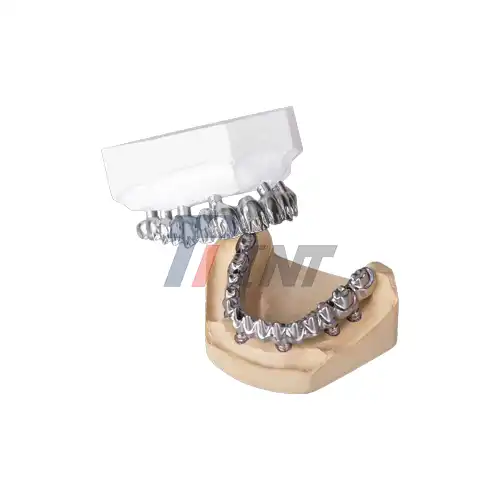
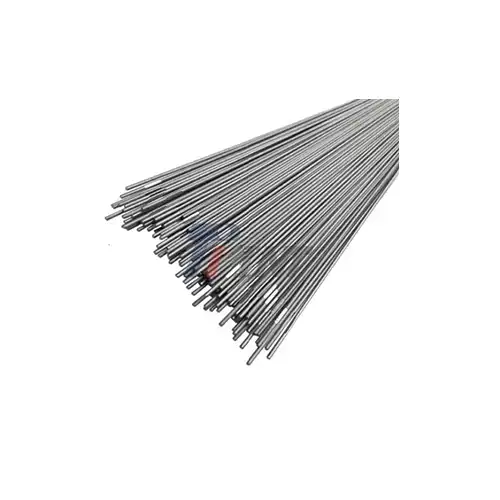
_1751620280646.webp)
_1750668839491.webp)
